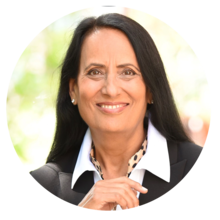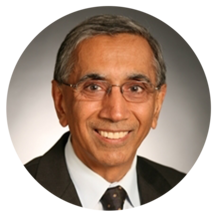About this Presentation
Knowing ?T and ?OE is important but there’s more. Such as, how long before a new customer contributes one dollar to your checking account? How do you know if you can afford to take on a major new opportunity? Why is it that growth often increases debt? I’ll show you how to talk out a scenario in terms everyone understands. You will likely be surprised by what this process reveals and how easy it is to apply. Most business owners understand a P&L or income statement and manage to it to improve profits. Fewer understand balance sheets and cash flow statements. In Theory Of Constraints (TOC), we know to identify our constraints, make decisions about how to get more from them and subordinate all other efforts. Throughput per constraint unit became very useful for day-to-day decisions. Throughput Economics explored plans substantial enough to change the constraint, maybe more than once. Henry will peer ahead with you at how you should manage and what to measure as your TOC efforts bring success. Eli Goldratt said that time is the ultimate constraint. If you waste it, you get no more. We also know that TOC is about flows, not static amounts. Throughput, the money produced by the company over time, is a flow. Operating expense is likewise a flow – time based. Pools of inventory and other assets are static amounts at a particular point in time. One of the beneficial outcomes of implementing TOC is the reduction of these required pools over time. Henry will show how you can think of flows and pools over time, integrating the three financial statements mentioned above. Once you adopt measurements and strategies that consider everything, you will be in a position to grow your company dramatically. This presentation stands on the shoulders of Eli Goldratt, as well as Ravi Gilani and Henry's presentation The Right Metrics and When to Use Them delivered at the TOCICO Conference Berlin 2017.
What Will You Learn
To help you get the most value from this session, we’ve highlighted a few key points. These takeaways capture the main ideas and practical insights from the presentation, making it easier for you to review, reflect, and apply what you’ve learned.

Time is the ultimate constraint in business and should be managed effectively.
Understanding and managing financial statements like balance sheets and cash flow statements is crucial for business owners.
Implementing the Theory of Constraints can help identify constraints and make decisions to get more from them, and can reduce required pools of inventory over time.
Instructor(s)
Henry F. Camp
Henry F. Camp - After earning a BA in Mathematics at the University ofVirginia, Camp taught for several years before joining Shippers Solutions, where he designed and programmed his own ERP system to improve the company’s operational effectiveness. After five years, he bought the
company and still owns it, having grown sales tenfold. A $4 billion customer implored Henry to manage their $70 million raw material inventories in 4 different countries. New software was created and deployed. Within months, five warehouses in four countries all demonstrated 6σ inventory accuracy. More importantly, the client’s shortages disappeared, which had previously delayed a third of planned production schedules. Added benefit: inventory needed dropped 70%.This spin off became IDEA, LLC, of which Mr. Camp owned the majority,
until it was sold in 2022.
IDEA expanded scope, delivering supply chain consulting using replenishment software based on constraints theory. In the early 2000’s, Henry formed a personal relationship with Eli Goldratt author of The Goal. A major client was adidas, who used IDEA’s Elucidate software to double their same-store sales without increased inventory or expense. He collaborated with Bahadir Inozu at Turkish Technic, Turkish Airline’s internal MRO group. Camp gained recognition as a worldwide authority in supply chains.
Henry shifted to buying companies instead of consulting. He raised money in the early 2010s to establish TOC Equity Partners which acquired and substantially improved three companies, using TOC and his operational expertise. These acquisitions have either been sold or are being positioned for sale at dramatic profits. With constraints theory experts Eli Schragenheim and Rocco Surace, he published his second book in 2019 titled Throughput Economics. The book expands TOC Throughput Accounting, showing how to apply a simple holistic approach in many different business cases. Throughput Economics helps companies improve quickly and significantly. As its ideas are more broadly adopted, future difficult economic shifts will be made easier, enhancing the world economy. He is currently the Manager of The Aviation Protection Group, which will support commercial airlines, as passenger traffic returns to normal, post-coronavirus pandemic.

Ms Alka Wadhwa
Alka Wadhwa is an experienced consultant and process improvement expert with over 24 years of expertise in the Theory of Constraints (TOC), Lean Six Sigma, and organizational performance optimization. She has successfully led projects in healthcare, financial services, and manufacturing, driving significant improvements such as a 67% boost in hospital operations and a 140% increase in outpatient visits.
Previously, Alka Wadhwa spent 17+ years at GE Global Research Center, where she led initiatives to enhance various GE businesses through advanced technologies, process redesign, and system optimization. Founder of Better Solutions Consulting, LLC, she specializes in using TOC, Six Sigma, and data analytics to streamline operations and build high-performance teams.
Her work has earned her multiple accolades, including the Empire State Award of Excellence in healthcare.

Dr Gary Wadhwa
Dr. Gary Wadhwa is a Board Certified Oral & Maxillofacial Surgeon with extensive experience in the field. He completed his Oral & Maxillofacial Surgery training at Montefiore Hospital, Albert Einstein College of Medicine in Bronx, NY, and has served as an Attending at prestigious institutions like St. Peters Hospitals, Ellis Hospital, and Beth Israel Hospital in NY. With a career spanning over two decades, he was the former CEO and President of a group specialty practice in NY from 1994 to 2015. Dr. Wadhwa holds an MBA from UT at Knoxville, TN, and has undergone additional training in System Dynamics at MIT, Health System Management at Harvard Business School, and Entrepreneurship and healthcare innovations at Columbia Business School. Committed to expanding access to Oral & Maxillofacial Surgery care, he is currently engaged in a meaningful project to provide healthcare services to underserved populations in inner city and rural areas through non-profit Community Health Centers.
